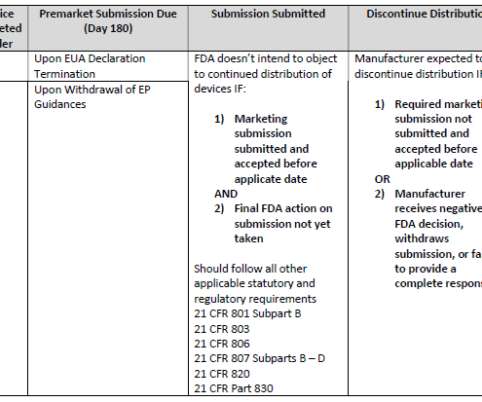New Draft Guidance Provides Detailed (and Burdensome) Recommendations for Chemical Assessments to Support Medical Device Biocompatibility
FDA Law Blog
NOVEMBER 20, 2024
Chemical characterization identifies and quantifies chemicals that may be released from the medical device, while a toxicological risk analysis (TRA) evaluates the risks to the patient associated with the chemicals identified. Chemical characterization can also be useful in evaluating a change to the materials or manufacturing of a device.















Let's personalize your content